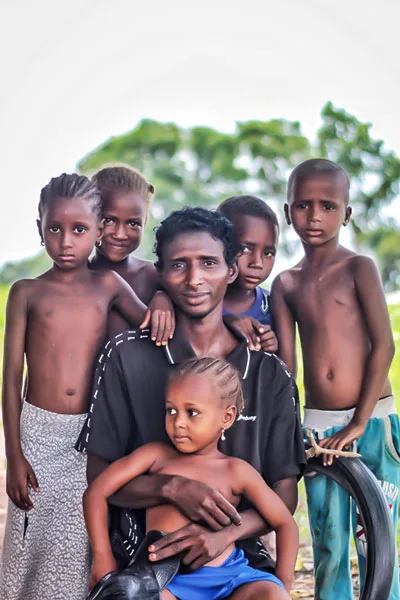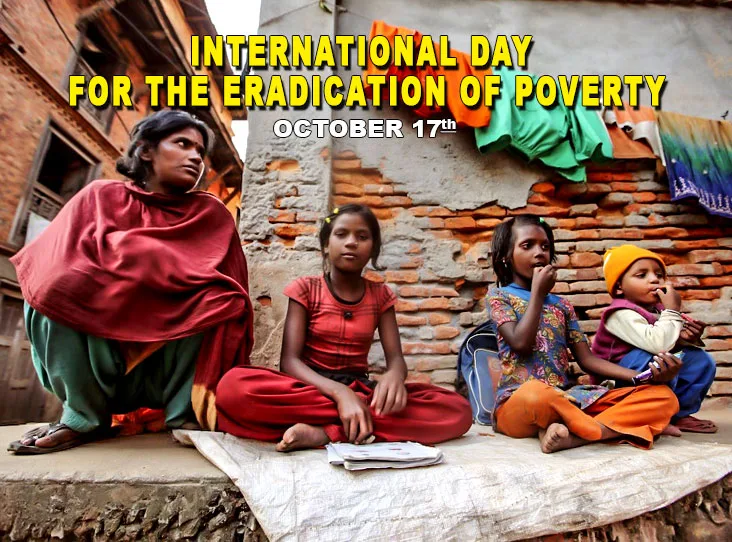Every year on October 17th, the International Day for the Eradication of Poverty is observed globally to raise awareness about the challenges faced by those living in poverty and to promote actions to alleviate their suffering. Established by the United Nations in 1992, this day serves as a stark reminder that poverty is not merely an economic issue but a multidimensional challenge that requires comprehensive and sustainable solutions. As we mark this day, it is imperative to reflect on progress made, assess existing challenges, and renew our commitment to building a world where no one is left behind.
Table of Contents
Understanding Poverty
Poverty is a complex phenomenon that extends beyond a lack of income. It encompasses deprivation in various aspects of life, such as education, health, sanitation, and access to basic amenities. According to the World Bank, as of 2021, approximately 9.2% of the world’s population, or around 689 million people, lived in extreme poverty, surviving on less than $1.90 a day. While significant progress has been made over the years, especially in East Asia and the Pacific, pockets of extreme poverty persist in various regions.
Key Themes of the International Day for the Eradication of Poverty:

- Participation and Dignity: The theme of participation underscores the importance of including people living in poverty in decision-making processes that affect their lives. Recognizing the dignity of individuals and empowering them to contribute to the development agenda fosters more inclusive and sustainable solutions.
- Social Protection: Social protection mechanisms play a crucial role in preventing and reducing poverty. Ensuring access to healthcare, education, and basic social services helps create a safety net for vulnerable populations, shielding them from the worst impacts of poverty.
- Sustainable Development Goals (SDGs): The International Day for the Eradication of Poverty aligns closely with the United Nations’ Sustainable Development Goals, particularly Goal 1, which aims to end poverty in all its forms everywhere. This day serves as a platform to assess progress toward achieving this ambitious goal and to strategize for the future.
- Global Solidarity: Poverty knows no borders, and addressing it requires global collaboration. The day emphasizes the need for international cooperation, policy coherence, and shared responsibility in the fight against poverty.
Challenges and Opportunities:
While significant strides have been made, several challenges persist in the global fight against poverty. Economic inequalities, climate change, armed conflicts, and the recent challenges posed by the COVID-19 pandemic have exacerbated the conditions of those already living in poverty. However, these challenges also present opportunities to reassess and reform policies to ensure a more resilient and inclusive recovery.
Governmental and Non-Governmental Initiatives:
Governments and non-governmental organizations play a crucial role in poverty eradication efforts. Through targeted policies, investments in education and healthcare, and the promotion of sustainable economic development, countries can uplift their citizens out of poverty. Grassroots organizations and community-based initiatives also contribute significantly by addressing local challenges and promoting community resilience.
Conclusion
The International Day for the Eradication of Poverty serves as an annual reminder of our collective responsibility to address the multifaceted challenges of poverty. As we commemorate this day, it is essential to recommit ourselves to the principles of equity, inclusion, and sustainability. By fostering global solidarity and implementing comprehensive strategies, we can build a world where every individual has the opportunity to live a life free from poverty and its debilitating effects. Through concerted efforts, we can turn the vision of a poverty-free world into a reality.
Author
Stay connected for new publications, events, and more.







More Stories
Le pape Léon XIV : un pontife historique qui jette un pont entre les continents et les cultures
What Happens When a Pope Dies
Le Prix de la Liberté : 17 Avril 1825, une Ordonnance Injuste. Déclaration de Macron